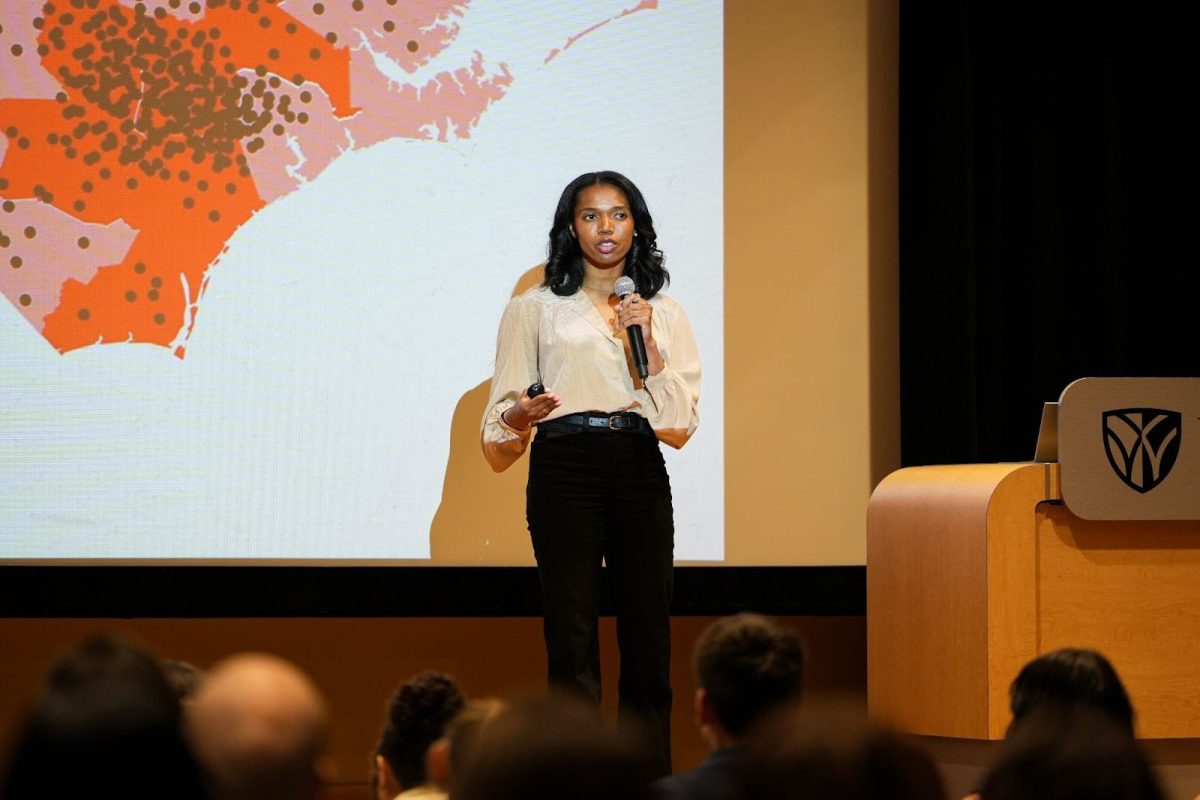Jennifer Burg is a professor in the Department of Computer Science and was the first head of the department from 2000-2004 when it split with the Mathematics Department.
She has a unique interdisciplinary background, as she earned her PhD in computer science after getting Masters degrees in English and French. Her work often integrates computer science with the humanities.
In your opinion why do many women not pursue the science, technology, engineering and math (STEM) fields, especially in computer science?
I think that women don’t realize how good they would be at it, and they don’t have enough exposure when they’re younger. I think that computer science is one of the fields that women shy away from the most. If they don’t have any kind of computer science course in high school, they really don’t know what it is and there’s nothing to attract them because they’ve never experienced it.
Many might associate computer science with computer use and computer games, and they don’t realize that there’s a large math and engineering component to it. I think it’s just a lack of knowledge.
What motivated you to shift your focus to computer science, given your initial career as an English and French professor at a community college?
I had been teaching at a community college for about seven years, and I had tenure there. One day, I looked around, saying, “Okay this is my life now, this is my job,” and it seemed so secure and so sudden that I started thinking that I wanted a new challenge. When I investigated the possibility of getting my PhD in French or English, which were my two of my focus areas, it didn’t seem like it would get me much, so I started looking for the kinds of degrees that were in need and discovered computer science. I took a computer programming class at the community college I taught at and just fell in love with computer programming and logical problem solving.
I had to go back and take all of the undergraduate computer science classes, so it took me a few years before I could even apply to the PhD program, but I just thought, “what the heck,” so I started taking the undergraduate computer science classes and liked it immediately.
What was it like to pursue a PhD in such a different discipline than your undergraduate studies?
I was the first in my family to go to college and the only one of my five sisters. I loved going back to school because I always liked learning new things and thought that I would be an even better student than when I went to graduate school because I was more mature.
Going to school is interesting for me, and my family used to tease me because I already had two Master’s degrees and they would always tease me about when I would finally be done going to school. It took eight to nine years to finish my degree. I also had a really supportive husband, and that made a big difference. He was a great husband, always supported me, helped me reach my goals and really had my back.
What value have you, as a woman with a background in the humanities, brought to your job in a STEM field?
I think that other people often look to me to write things in the department. Writing is a valuable skill to have in academia because we’re expected to write and publish papers. Of course, it’s a different kind of writing. It’s technical writing. Additionally, when you add a woman to a group of men working, the communication is different and valuable to have in the mix.
I have been writing textbooks, which I like because I enjoy learning things and wrapping my mind around things. Once I understand something, I enjoy explaining it to someone else in a clear way. I like textbook writing, and it enables me to use my interdisciplinary background. I wrote one that is the Digital Sound of Music, where we went into the science and the applications of how one edits and manipulates sound.
I have a current grant at the National Science Foundation to support programs for computing in the arts, so it relates computation to visual arts, theatre and music, trying to help people create such programs in their universities.
What is your favorite part of being a professor at Wake Forest?
My favorite part is teaching programming and logical problem solving. I very much enjoy working with my students, and Wake Forest has a lot of really good, motivated students, so I enjoy that.
I have a lot of freedom in my schedule I choose to teach my STEM incubator course and there is a lot of autonomy, meaning that I’m my own boss to a great extent. We have a very compatible department. I love my job, I like the diversity of being able to teach different things in different semesters and I like working in digital media. I like that I am an interdisciplinary person and the fact that it is valued here. I feel valued by my department.
What advice do you have for young women pursuing computer science?
Get the best math background you can because math will help you. You don’t have to be a top mathematician, but the better background you have, the better you’ll be able to relate it to computer science. Don’t be afraid to tinker with electronics and look inside a computer to find out what makes it work. If that’s not all completely abstract to you, that combination of theoretical and logical problem solving with the hands-on tinkering will make it real.
How has society shifted it’s view on women in STEM since you were younger?
I was the first to go to college in my family. I chose to study French first, just because I was the best student in my French class. When I graduated from high school, women generally thought they could be a teacher, a nurse or a secretary, and so I thought I would be a French teacher, just because I was good at French and was good at languages.
What are your hobbies outside of work?
I like to paint and do water colors. I also like to take photographs, and then I like to paint from the photographs.









